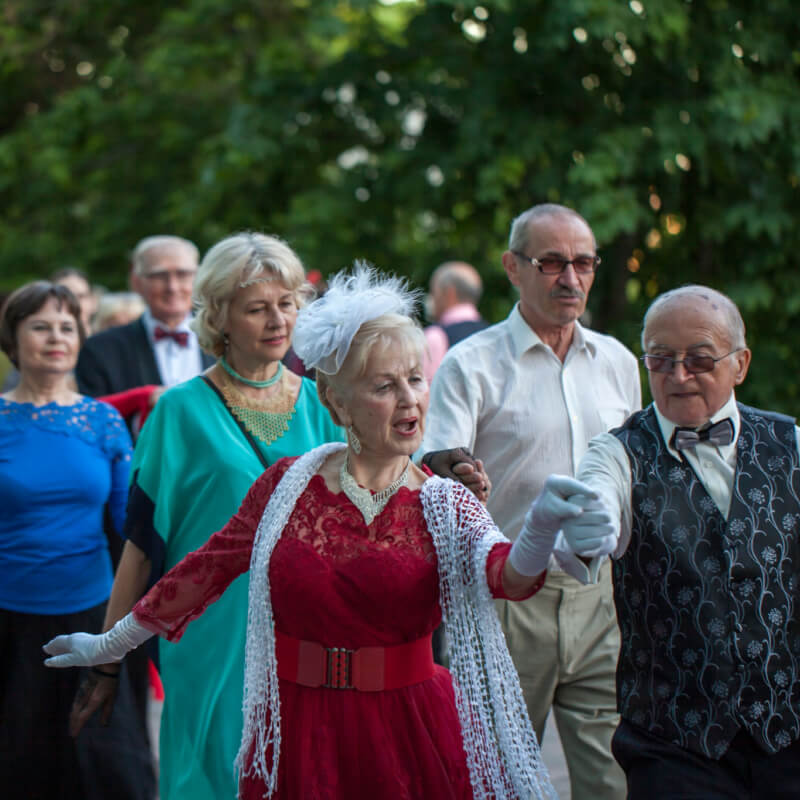Services

Open Work Permit For Spouse (or partner)
Being an international student, you can bring your spouse or partner with you to Canada, they may be eligible for a spousal open work permit that will allow them to work full-time while you are on your study permit. Spousal work permit is nonjob specific work permit. Your spouse (or common-law partner) can accept any job with any employer (provided the employer does not fall in the list of ineligible list). Normally, your spouse or partner gets an open work permit, which is valid for the same period as your study permits. Medical examination is needed to acquire this work permit.
Who is eligible for this permit?
Being an international student, you can bring your spouse or partner with you to Canada, they may be eligible for a spousal open work permit that will allow them to work full-time while you are on your study permit. There are no requirements for your spouse/partner to have a job offer before you apply. Spouse’s open work permit will be valid till the same period as your study permit.
At what time to apply?
Your spouse/partner can apply for this work permit before you reach Canada or after landing. Also, your spouse can apply for it being outland or inland. There are no requirements for your spouse/partner to have a job offer before you apply. Spouse’s open work permit will be valid till the same period as your study permit. At times, Canadian visa offices abroad will process spouse/partner work permit applications at the same time as study permit applications. In such a case, you will need to include the additional fee for the work permit and complete the work permit application for your spouse/partner.
Open Work Permit Conditions
Spousal Open Work permits which are issued by IRCC may be subject to restrictions. Earlier, International students who were not required to undergo an immigration medical examination before coming to Canada may now be subject to the following occupation restrictions that require an immigration medical examination. 1. health care 2. Childcare 3. primary and secondary education. Find more about the complete list of occupations and Designated Medical Practitioners on the IRCC website.
Visitor Visa (Temporary Resident Visa)
Millions of people flock to Canada to meet friends and family, experience beauty, study, and more every year. Every country follows a security protocol to ensure the safety of its citizens, and Canada is not an exception. Canada offers visitors visas or temporary resident visas valid for six months to 10 years to keep track of visitors. Visitor’s Visa or temporary resident visa is the official permission that allows a foreign national to enter Canada legally and stay there for a specific time without any hassles. In some cases, a visitor visa is necessary if you are transiting through Canada via bus, airways, train, cruise, or boat. If an applicant wants to study or work in Canada, he/she will have to obtain a work permit or study visa. Please note that the applicant needs to get travel insurance as it will protect from any unpredicted adversaries during the visit.

Types of Canadian Visitor Visa
There are mainly two types of Canadian Visa-
- Tourist visa- allows foreign nationals to spend vacations and indulge in leisure activities via visiting family and friends or any social function.
- Business visa- allows foreign nations to indulge in business via attending meetings, conferences, and more.
Eligibility criteria for Visitor Visa
While traveling to Canada for a business trip, medical treatment, or even a short course, you’ll need a visitor visa. To obtain the visa easily without any hassles, you’ll have to meet these requirements-
- You must have a passport
- Must have a valid health certificate
- Zero criminal records and intentions to comply with country laws
- Documents to prove your ties in your homeland, i.e., family members, job, and home
- Intention to leave at the end of visitor visa permit
- Financial proof to show you have enough money to support yourself in Canada
- May also require an invitation from relatives staying in Canada
- Must have no intention to seek a job
- May need to produce more documents based on profile

Post Graduate Work Permit
A Post Graduate Work Permit allows you to work in Canada. Before you apply
- Your study permit will become invalid 90 days after your Letter of Degree Completion is available, or the study permit expiration date, whichever comes first.
- If your study permit expires before the 90 days after your Letter of Degree Completion becomes available, consider applying to extend your study permit for an additional 90-day bridging period 3-4 months before your study permit expires.
- Having a valid study permit at the time of application and within 90 days of completion is one of the requirements to be eligible to work full-time after submitting your PGWP application online.
PGWPs are issued only once in a lifetime, therefore, if you have plans to pursue further studies in Canada, you may wish to consult EMRI Canada Visas to discuss when to apply.
If Immigration, Refugees and Citizenship Canada (IRCC) receives your application for a PGWP within 90 days of completing the requirements, you may work full-time while you wait for a decision on your PGWP application if you meet this criterion, as per the Immigration and Refugee Protection Regulations:
- You were enrolled full time in a degree or diploma program that was longer than eight months.
- You did not work over the authorized number of hours per week when you were a student.
If your application for your PGWP is not approved, your legal status will end and you MUST leave Canada, unless you have obtained alternate legal status.
Work Permit Conditions
Work permits issued by IRCC, such as internship/co-op, off-campus, and post-graduate work permits may be subject to restrictions. International students who were not required to undergo an immigration medical examination before coming to Canada may be subject to the following occupation/workplace restrictions that require an immigration medical examination:
- Health care setting
- Childcare, primary and secondary educational facilities
Studying in Canada
International students, who wish to study in Canada for more than six months must have a valid Study Permit that will allow them to study at a post-secondary institution. Students should not begin their studies a valid Study Permit. As an international student, there are number of documents you need to study in Canada. You are responsible for maintaining your immigration status and obeying immigration regulations while you are here. International students must apply for a Study Permit and possibly a Temporary Resident Visa (TRV) or Electronic Travel Authorization (eTA) to enter and study in Canada. If you plan to study in Canada for more than six months, or your program is more than six months long, you need a study permit. You must apply for it before arriving in Canada. If an applicant wants to study or work in Canada, he/she will have to obtain a work permit or study visa. Please note that the applicant needs to get travel insurance as it will protect from any unpredicted adversaries during the visit.
- A valid passport, Your letter of acceptance
- Proof or statement of adequate funds to live and study in Canada
- Co-op/Internship letter (if applicable)
- The $150 CAD processing fee, Other documents may be required

Please Note: To apply for a study permit, you will need to identify the university by its designated learning institution number (DLI) on the study permit application form. If you attended high school in Canada on a "secondary school" study permit, you must update your permit to a "post-secondary" study permit.
You can apply for the Temporary Resident Visa (Visitor Visa) at the same time you apply for the study permit, at an extra cost of $100 CAD. Study plans are not always requested in a study permit application, but it is a good idea to include key information in a letter of intent that will accompany your application. Apply Early Once you have received an acceptance letter and secured financial assistance, begin the process of applying for your study permit, co-op work permit (if applicable to your program), and or visa immediately.
Keep a copy of your medical/police certificate You may need a medical exam and submit a police record as part of your application. Keep a copy of the medical certificate or record. You may need it for future immigration applications. Bring these certificates/records with you when you travel to Canada. Bring the letter from the visa office with you The Canadian visa office will issue a letter confirming the approval (included in the package sent back to you). This letter is not your Study Permit. Show this letter to immigration officials when you enter Canada. You will then be issued a Study Permit (and Co-op Work Permit if requested in your application).

Super Visas
Who is it for?
Since first being introduced in 2011, the Super Visa has allowed many thousands of international parents and grandparents to come to Canada for extended periods, benefiting families and communities across the country, not just socially, but economically too. For example, by their presence in Canada, parents and grandparents of adult children can help with taking care of infants, allowing working-age immigrants and naturalized citizens to take a full part in the Canadian labor force.
The spouse or common-law partner of a Super Visa applicant may also come to Canada on the same status, but other dependents may not. It should be noted that Super Visa holders are not allowed to work in Canada.
Super Visa: What do I need to do?
There are a couple of conditions that must be met to apply for the Super Visa:
- You must have an invitation from a host in Canada (i.e., your child or grandchild). The host must meet a minimum income threshold, as they are responsible for your financial support while in Canada.
- You must pass a medical examination.
- You must have valid medical insurance coverage for at least one year.
The insurance policy must:
- Be valid for at least one year.
- Cover health care, hospitalization, and repatriation.
- Be valid for each entry to Canada; and
- Be available for review by an officer at a Canadian port of entry.
Spousal Sponsorship Canada
In order to sponsor a spouse, common-law partner, or conjugal partner to Canada, you must be a citizen, permanent resident, or a registered Indian under the Canadian Indian Act. You must be 18 years of age or older, and meet any further requirements, such as financial stability, to prove you have the capacity to act as a sponsor.
What are the Requirements for a Spouse or Partner Being Sponsored?
The spouse or partner applying for permanent residence must be at least 18 years old, and both the sponsor and the beneficiary must prove their relationship is genuine. Immigration officials have been faced with spousal sponsorship cases in which the individual is just applying for permanent residence and not to be with their partner. In such cases, the individual may be denied. Therefore, it is important to only enter under this class if the intent is sincere. A common-law partner applying under this class must live with their sponsor in Canada for a minimum of 1 year. This is not necessarily the case for a spouse. In cases where the sponsor and applicant are married but live apart overseas, the sponsor will sponsor the applicant so they can live together in Canada. This does not apply for conjugal partners.

Inland Spousal Sponsorship
To qualify for the Inland sponsorship category, the foreign spouse or partner must have temporary resident status in Canada, which can be as a worker, student, or visitor. Applicants may be eligible for an open work permit, which ensures they can work for a Canadian employer while the application is processed. This may help prevent any issues that can arise if an existing visa expires before the sponsorship process is completed.
Outland Spousal Sponsorship
The Outland sponsorship category applies to a situation where the foreign partner is living outside of Canada. While the sponsored individual may still be able to travel in and out of Canada during the application process, their application will be processed through the visa office in their country of origin or permanent residence.
How long does it take to sponsor a spouse in Canada?
The average processing time of a spousal sponsorship is approximately 12 months. However, depending on specific circumstances and regions, it may be shorter or as long as 36 months. This sponsorship can be done by a Canadian citizen or a permanent resident.

Canada Permanent Residence (PR)
Canada is a land of opportunity and thousands of people seek to become permanent residents and get their PR card every single year. In fact, Canada has been increasing the number of successful applicants each year. The Canadian government plans to invite 411,000 individuals to become permanent residents in 2022 and that number continues to grow!
Calculate your score in the CRS system for Express Entry. Add all the point that you may obtain through examining the categories of age, level of education, official language proficiency, second official language, and Canadian work experience. Furthermore, applicants need to be able to prove that they have sufficient funds to support themselves and their family, unless they can already legally work in or have a valid job offer from an employer in Canada.
Anyone is allowed to apply for permanent residency in Canada, but only qualified individuals will be accepted. To find if you are eligible for permanent residency, you will be examined by your:
- age
- level of education
- official language proficiency
- second official language
- Canadian work experience
Canadian politics
Citizens in Canada have a bigger voice and can vote in federal, provincial, and municipal elections.
High-level jobs
Citizens can apply for higher-level federal jobs that often pay very well and come with benefits.
Dual citizenship
As a Canadian citizen, you are not required to choose Canada as your primary home country. If applicable, you may apply for dual citizenship.
Family
Where a child is born in Canada, they are automatically considered a Canadian citizen.
Taxes
If you become a Canadian citizen and decide to live elsewhere, you may not be required to pay Canadian taxes as they are based on residency as opposed to citizenship.
The PR Card is normally issued for 5 years and can be renewed. To keep your permanent resident status, you must stay in Canada for 730 days within those 5 years.
